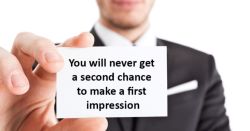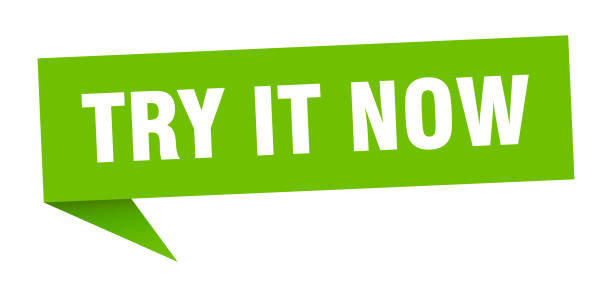 Last week, I shared what fatal mistakes you can make in a job search communication with the hiring manager. As I continue to hire, I received this cover letter email below. This is a good example what you should do in your cover letter email to make a good first impression. This email immediately piqued my interest to speak to this candidate. This is the entire goal of your job search communication – get an interview.
Last week, I shared what fatal mistakes you can make in a job search communication with the hiring manager. As I continue to hire, I received this cover letter email below. This is a good example what you should do in your cover letter email to make a good first impression. This email immediately piqued my interest to speak to this candidate. This is the entire goal of your job search communication – get an interview.
Example of a Good Cover Letter Email
I hid some details from her actual email to protect her identity, but the essence is the same.
I understand you are looking for 3 Digital Product Managers to join your team in the Private Bank. … I would like to apply for the roles on your team…
About me: I have been at Bank X for almost 4 years now. During that time I managed Domestic and Cross Border payments for ab clients and drafted user stories for ab Payments for the yyy platform. I currently manage the zzz suite of products… Prior to joining xxx, I managed Bill Pay and External Transfers at Bank Y. In addition to my money movement experience, I have extensive product management experience across a breadth of financial services products including both Credit and Deposits.
I am currently seeking career growth and would welcome the opportunity to bring my skills to the Private Bank. As an existing employee with Digital Money Movement Product Management experience, I believe I am an excellent candidate for these roles can jump in and quickly contribute to your team. Attached is my resume for your review. I welcome the opportunity to discuss with you how my skills and experience can benefit you and your team.
What Did this Candidate Do Well
Similar to the last article, I ask you to first think about what you think this candidate did well to pique my interest. Put down a list of things you notice in the comments below before you read any further
Once I read her email, I emailed her back right away with some questions and arranged a time to speak with her. Here are the 3 aspects I liked about her cover letter email
#1: She was direct and to the point.
This saved me time to guess why she was reaching out. She referred to my postings in the opening paragraph. Then she got right to what she is doing now and why she thinks she is qualified for my postings. This point may seem trivial, but it’s not.
Unlike her, two other candidates reached out randomly to see how I liked my current role. I am not friends with them nor do we keep in touch. I knew they reached out due to my postings; however each one didn’t get to that point until several back and forth. I appreciate directness and clarity in communication. While they may think they are being clever about their approach, I already decided after a few exchanges, they wouldn’t be a good fit for my team.
#2: She was specific in why she qualified.
It was clear in her communication that she read my postings and knew why she would be a good fit. Her summary of her current role and past experience made it easy for me to want to find out more.
Again unlike her, I had a candidate that had no relevant experience reach out to apply to my postings. When I asked why he thinks he is qualified, he said he will bring structured product management discipline to the role. While that is one aspect of what I am looking for, it’s not enough as he had no relevant experience to the specific area of digital I needed. He could have tried harder to show he has passion for customer experience or something, but he didn’t make more effort than that.
#3: She came across confident
I believe I am an excellent candidate for these roles can jump in and quickly contribute to your team.
It’s important to make these statement and share why you think the hiring manager would want to know more. One of the biggest challenges for a hiring manager is gauging whether a candidate can ramp up quickly and contribute. This sentence at least shows she understands my needs as a hiring manager. At least now I am curious enough to want to know more about her.
What is the Twist?
Well, I met her and was again impressed with her in this first informal meeting. I told her I would need to do a more formal interview in a few weeks.
So what’s the twist? Just because she sent in a good cover letter email and had a good first conversation with me doesn’t mean she is automatically a fit for my job openings. The twist is this first set of communications is just the beginning. For her to actually get the job, she still need to pass the following
- Formal interview – I am a tough interviewer and will use real life scenario questions to assess both a candidate’s hard skills and soft skills.
- Partner test – I will still a partner to interview her and get a final thumbs up. A product manager must work with many partners. I usually look for partners who are also good interviewers to help me.
- Reference check – I don’t mean references the candidate provides. That rarely leads to a real assessment. Since she is an internal candidate, I will reach out to those who worked with her to find out if they recommend her. For any external candidates, I usually search on Linkedin for shared connections and reach out to them for confidential feedback. This is the best way to get a real picture.
At the end of the day …
Job search overall is a process. For candidates, it’s a process to consistently show you are the right fit for the job. For hiring managers, it’s a process to find the best candidate who have the right experience, skills, and culture fit with the team.
Your comments: What is your biggest challenge in your job search? I look forward to your comments
Like this article? Then help me share it on Linkedin, Facebook, and Twitter
New to this site? Start here – Soft Skills – How to Succeed Like an Executive
Lei
